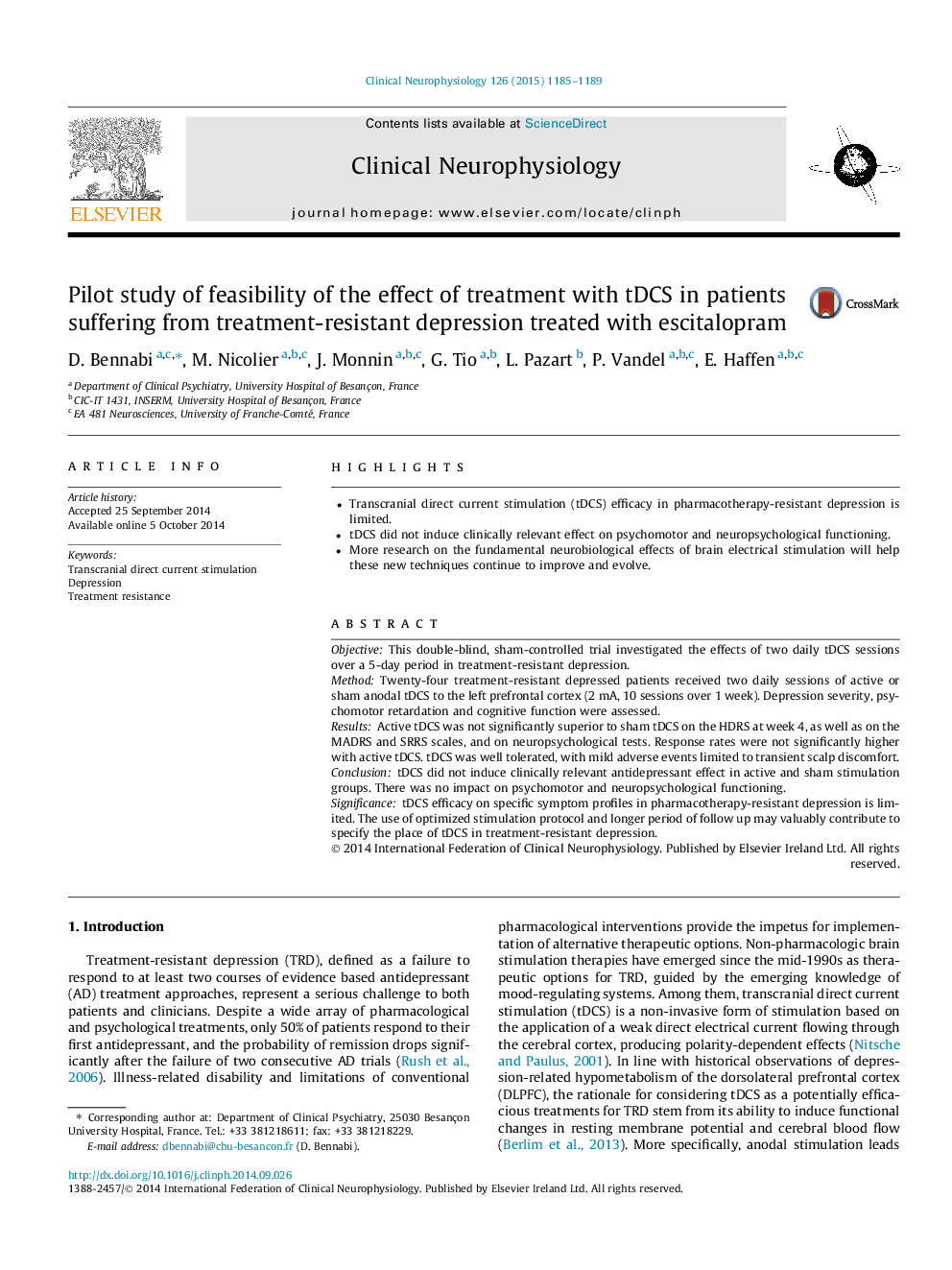| Article ID | Journal | Published Year | Pages | File Type |
|---|---|---|---|---|
| 6008020 | Clinical Neurophysiology | 2015 | 5 Pages |
â¢Transcranial direct current stimulation (tDCS) efficacy in pharmacotherapy-resistant depression is limited.â¢tDCS did not induce clinically relevant effect on psychomotor and neuropsychological functioning.â¢More research on the fundamental neurobiological effects of brain electrical stimulation will help these new techniques continue to improve and evolve.
ObjectiveThis double-blind, sham-controlled trial investigated the effects of two daily tDCS sessions over a 5-day period in treatment-resistant depression.MethodTwenty-four treatment-resistant depressed patients received two daily sessions of active or sham anodal tDCS to the left prefrontal cortex (2Â mA, 10 sessions over 1Â week). Depression severity, psychomotor retardation and cognitive function were assessed.ResultsActive tDCS was not significantly superior to sham tDCS on the HDRS at week 4, as well as on the MADRS and SRRS scales, and on neuropsychological tests. Response rates were not significantly higher with active tDCS. tDCS was well tolerated, with mild adverse events limited to transient scalp discomfort.ConclusiontDCS did not induce clinically relevant antidepressant effect in active and sham stimulation groups. There was no impact on psychomotor and neuropsychological functioning.SignificancetDCS efficacy on specific symptom profiles in pharmacotherapy-resistant depression is limited. The use of optimized stimulation protocol and longer period of follow up may valuably contribute to specify the place of tDCS in treatment-resistant depression.
